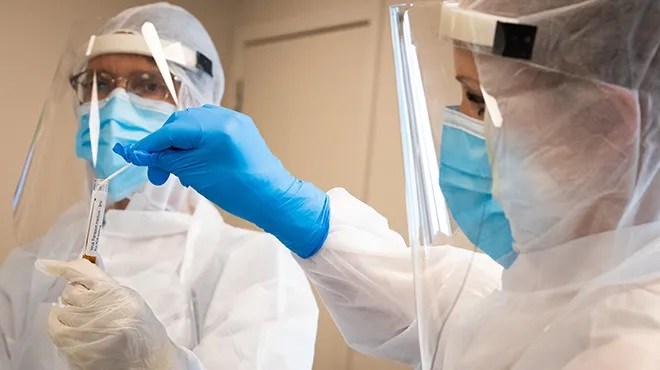Seven out of ten nurses are under such increasing pressure of work that they are at risk of suffering a burnout, according to a representative of the profession, speaking on RTBF television.
Arnaud Bruyneel, vice-president of SIZ Nursing, which represents nurses working in intensive care, explained the problem.
“The difficulty at the moment is the management of a double flow of patients: Covid and others,” he said.
“The workload has been enormous. Since the beginning of August, we have been trying to make up for a significant operational delay. My intensive care unit has been at the end of its tether ever since.”
The outbreak of the Covid-19 epidemic in Belgium led to a rush on hospitals, while other procedures were put on hold. When the epidemic died down somewhat, those patients whose care had been postponed started to come back.
But then, as that backlog still had not been worked away, the numbers of hospital admissions and ICU cases started to climb again. A combination of the two factors is now starting to put severe pressure on the country’s hospitals.
Related News
- Brussels races to keep hospitals from collapse as Covid-19 cases surge
- Brussels University Hospital expands capacity for coronavirus patients
There is now, he said, a real risk of a shortage of sufficient staff to cope with the situation.
“There has been an increase in absenteeism,” he explained.
“We still have postponed leave from the first wave to take. I hope we can, but with this absenteeism, I have the impression that we will have to close intensive care beds for lack of nursing staff, which already happens in normal times.”
If that were to happen, other medical activity would once more have to be set aside, thus storing up problems for the future.
SIZ Nursing took a poll of 4,500 nurses in French-speaking Belgium at the height of the crisis, and found seven out of ten at risk of suffering a burnout. That number may have fallen since then, but not by much, he said, and the near future offers little solace.
And the problem is not confined to nursing staff.
“General practitioners are experiencing a cavalcade of emotions,” said Thomas Orban, president of the society of general practitioners in French-speaking Belgium.
“They are tired, they have been giving their best since the beginning of March, mainly to relieve the hospital overload, they are angry and frustrated, but also tired of having issued warnings so often without being heard,” he said.
The main difficulty for family doctors is that everything passes across their desks, such as tests that could not be done in the testing centres.
“We have had to bridge the gap between the political and reality from the start. We have patients who could not be treated because of the lockdown and who are still there now. And we have piles of documents to take care of. We could use three secretaries each!”
Alan Hope
The Brussels Times

